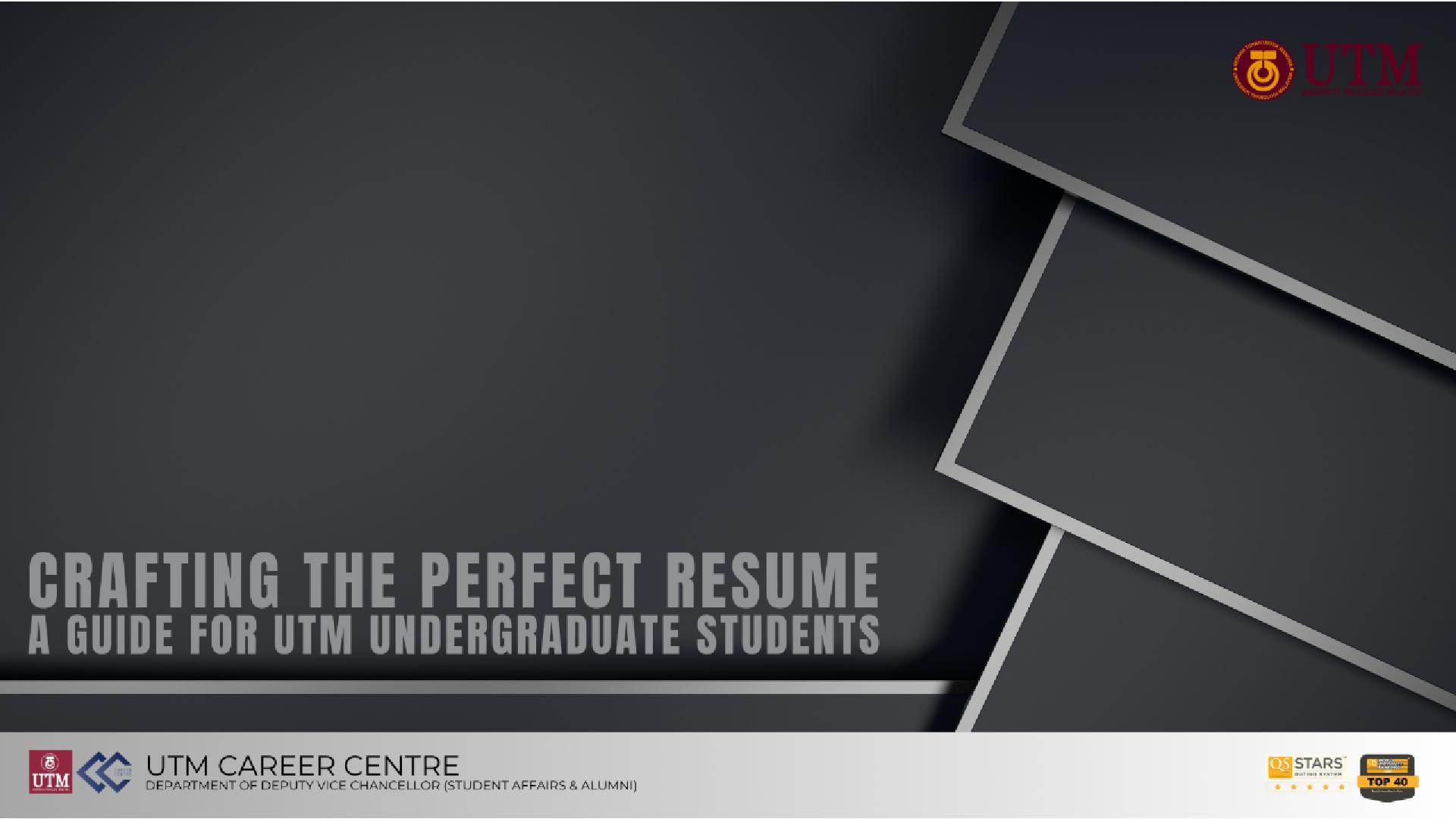Resume
How does a ‘fresh graduate’ like you want
to have work experience without
ever having a job?
CAREER GUIDANCE
A good resume plays a role for you to be accepted to work through 7 tips
for writing a resume without work experience as follows: –
Choose the correct resume format
There are several resume format options to meet different job application criteria such as ‘chronological’, ‘functional’ and ‘hybrid’ where it is a combination of the two formats. For job seekers who do not have much work experience, you are advised to choose between a ‘chronological’ or ‘hybrid’ resume format as employers are more comfortable with that format. Here are the things that can be included in the resume:
- Enter contact details at the top of the resume.
- Write a brief resume objective statement.
- Describe your relevant level of education and skills.
- Enter certificates of achievement and awards received.
- Enter a list of internships, co-curricular activities, and volunteer activities.
- Emphasise keywords and tailor your resume accordingly.
- Write a good ‘cover letter’.
Write an objective or summary of the resume
Aside from writing career objectives at the top of the resume, what words would you convert to writing objectives or resume summary as another alternative? The resume summary is where you emphasise the level of skills you have acquired from your course of study and relate them to the skills the prospective employer is looking for. The summary of the resume can be written in 2 to 4 sentences only. For example:
Example in Malay:
“Seorang graduan seni bina dari salah sebuah universiti berprestij di Malaysia. Saya berjaya memperoleh gred yang cemerlang untuk kursus pembelajaran saya. Saya kini mencari peluang untuk mengasah bakat dan ingin mengembangkan kerjaya sebagai seorang arkitek bersama Global Architect.”
Example in English:
“An architecture graduate from one of the prestigious universities in Malaysia. I managed to obtain outstanding grades in my coursework. I am currently looking for opportunities to hone my talents and develop a career as an architect with Global Architect.”
Focus on education level and skills
When writing about the level of education and skill set acquired during your studies, it is recommended that you relate it to the job description provided in a vacancy advertisement. Find the keywords used by the employer and include those keywords in your writing. Refer to the following questions:
- What skill set are prospective employers looking for?
- What can you contribute to the prospective employer organisation?
- Will the courses taken help prepare you for a particular position?
Include the part of the skill that stands out
Even if you, as a ‘fresh graduate’, do not have any work experience, you can still match the skill set with the job description provided by the prospective employer but avoid lying. List all your ‘hard skills’ and ‘soft skills’ on a piece of paper or Excel sheet, then select the skill set relevant to what the prospective employer is looking for.
Think about your experience
Having a full-time job is not the only work experience that can be listed on your resume. Think about internship experience, part-time work, and ‘freelance’ work which can also be counted as work experience. If prospective employers need a certain level of qualification, why not get some appropriate certification?
Include other components
To write a resume without work experience, you have the added advantage of where you can include other components into your resume. This section will help highlight personality traits that can make you a qualified candidate for a particular position. Among the components you can include are:
Volunteer activities: Think and reflect on all the volunteer activities you participated in throughout your studies. The activities are also considered as work experience.
Certification: For a ‘fresh graduate’ like you, you should include the relevant certification to show your skills.
Hobbies and interests: Those things are your choice, but they can, to some extent, show off the other side of your personality. There are some tips for incorporating hobbies and interests into your resume.
Languages: If you have the talent to speak in multiple languages, you can also include that in your resume.
Awards and accolades: You can include all awards and accolades received during your studies.
Include ‘cover letter’
Not many people realise that a ‘cover letter’ is necessary when sending a resume to a prospective employer. The letter helps showcase your first impression as a qualified candidate for the position you applied for. A good resume does not stand out without a cover letter. Therefore, you should write and include the letter to increase the chances of being hired.


